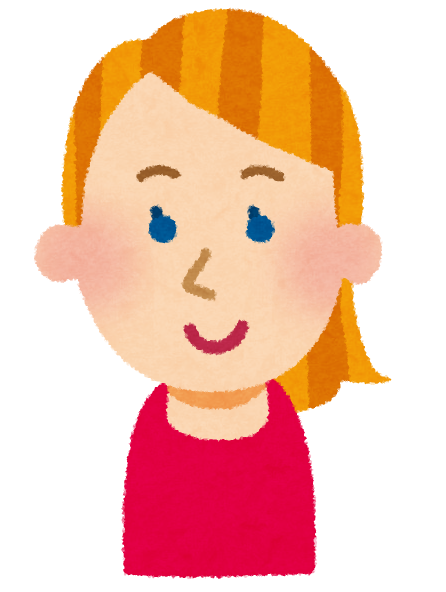ライフハックとしてではなく、英語学習にも極めて有用なのが、著名人が10分程度のプレゼンを行うTEDです。
TED Talksとは、あらゆる分野のエキスパートたちによるプレゼンテーションを無料で視聴できる動画配信サービスのことです。10年ほど前にサービスが開始されてから、政治、心理学、経済、日常生活などの幅広いコンテンツが視聴できることから人気を集めています。
RareJob English Lab
TEDは4000を超える膨大な数の動画があります。しかし慣れないうちは、動画の探し方や視聴のコツが分かりませんよね。この記事では、数多くのTEDを見てきた管理人(塩@saltandshio)が、心を揺さぶられたトークをあらすじと一緒にご紹介します。
ビジネス英会話を効率よく身につけたい方におすすめスクール
シェーン英会話
シェーンは1977年の創業以来、ネイティブ講師が英語を英語で教える「直接教授法」を採用しています。首都圏におけるスクール拠点数は、ネイティブ講師の英会話スクールでNo.1。駅から近いスクールが多いので通いやすく時間を有効に使えます。
スピークバディ パーソナルコーチング
1日1時間の短期集中トレーニングで、あなたの英語力向上をコーチが全力でサポートします。あなたの英語の世界が、劇的に変わります。
ラハフ・ハーフーシュ:燃え尽き症候群によって創造性が失われる
To Doリストやライフハック、朝活など、生産性に固執しているせいで私たちは創造性を失っている、とデジタル人類学者のラハフ・ハーフーシュは言います。日々の仕事の仕方を、効率のためだけでなく、創造性を中心にすえたものに作り直すべき理由を彼女が教えてくれます(約5分)。Rahaf Harfoush / How burnout makes us less creative.
[PR]無料体験レッスン実施中!全国208校、創業40年の老舗英会話スクール【シェーン英会話】生産的でないと人は落ち込む?
仕事帰りに「今日はなにも仕事が出来なかったな……」と落ち込むことはありませんか?きちんと働いているけれど形として残っていない、忙しかったけれど中身はなかった、そう思う時はひどく気落ちするものです。どうにかしなければと、新しい手法を取り入れたり、自己啓発書を読む人もいるでしょう。
デジタル人類学者のラハフ・ハーフーシュもその一人でした。
私は全部やりました。To Do やカレンダーのアプリや、時間管理アプリなど、一日を管理するためのツールを色々です。
I’ve tried them all — task apps, calendar apps, time-management apps, things that are meant to manage your day.
しかし、彼女は仕事をこなそうとするあまり、大切なことを見落としていただけでなく、これらのツールが役に立つどころか、逆に事態を悪化させていたことにも気づきました。
[PR]まずは無料カウンセリング”続けるため”の オンライン英語コーチ「スピークバディ パーソナルコーチング」生産性とはなにか
そもそも生産性とはなんでしょう。現代で言う生産性は、産業革命の頃に使われた言葉で、継続的な生産量に基づいて効率を測るシステムです。ネジを作る工場なら決められた時間の中でどれだけネジが作られたか、洋服を作る会社なら何着の服を縫うことが出来たか、それが生産性を測る目安になっていました。
一日の終わりには、よく働いた者とそうでない者を見分けるのは容易でした。
At the end of the day, it was pretty easy to see who worked hard and who hadn’t.
しかし、知的経済に移行していくと、生産性は目に見えにくいものとなり、単純に測ることが出来なくなりました。また、業種によってもわかりやすいものと、そうでないものもあり、より分かりにくくなっています。
[PR]しちだの魔法ペンなら35日でバイリンガルに!楽天4部門1位の英会話!<七田式>現代は抽象的に仕事量をはかる時代
数をこなすというより、文章の執筆や問題解決のために戦略の考案をするなど、現代の仕事は数量化しにくいタスクが増えました。しかし、企業は従来のシステムに無理やり当てはめて、いまだにそれぞれの作業員の仕事量を測っています。
タイムカードも、それらを測るシステムのひとつです。しかし、タイムカードが出来たことによって自分がどんな仕事をしているか一秒単位で管理されてしまうという、新たなプレッシャーが発生してしまいました。
このシステムは創造的な仕事には向かないのです。生産性はいまだに耐久スポーツのように考えられます。ブログにできる限り多くの投稿をしてみたり、一日を会議の予定でいっぱいにしたりします。
でも継続的にアウトプットするモデルは、創造的な思考には合わないのです。
These systems don’t make a lot of sense for creative work. We still think of productivity as an endurance sport. You try to churn out as many blog posts or we cram our day full of meetings.
But this model of constant output isn’t conducive to creative thought.
目に見えた結果を形にしようとするばかりに数に囚われてしまうと、知らず知らずのうちに知的労働者は計り知れない疲労感に襲われてしまいます。なぜなら、人が常に同程度の生産的かつ創造的な作品を、休みなく生み出すことはほぼ不可能だからです。
[PR]知って得する、知らないと損をする!すぐに役立つ相手に合った「伝え方」のコツ!アメリカンドリームが人を追い詰める
南カリフォルニア大学の研究チームによると、ぼーっとする時間は必要不可欠な心的状態だと紹介しています。ぼんやりとする時間はアイデンティティを形成し、社交的なやり取りを咀嚼するのに役立ち、倫理的指針にさえ影響すると彼らは言います。この休憩の必要性は、てきぱき働けという主流の考え方と激しく乖離しています。
さらに、もうひとつのむかしからある言葉が知的労働者を追い詰めています。それが、アメリカンドリームという言葉です。
(アメリカンドリームは)よく働けば成功できるとされています。でも、この話は逆にも働きます。成功できないのは、十分に頑張っていないからだと見なされるのです。
This tells us that if we work hard, we’ll be successful. But there’s a flip side. If you aren’t successful, it must mean that you’re not working hard enough.
実際、アメリカの平均的な社員は与えられた有給休暇の半分しか使いません。休むという選択肢を与えられているにも関わらず休まないのは、自分が頑張れていないと感じている人が多いから――というのも、理由の一つに考えられています。
生産性は自尊心と密接に結びついているので、頑張るのをやめてもいいかと思うのは不可能に近いことなのです。
Productivity has wrapped itself up in our self-worth, so that it’s almost impossible for us to allow ourselves to stop working.
成果を上げることは悪いことではありません。しかし、創造的な仕事を測る場合には、現代のシステムは適していないのは紛れもない事実なのです。
[PR]検定試験合格者累計140万人!スマホ対応☆国家資格ほか資格取得ならSMART合格対策講座まとめ:自分らしく働こう
これらの問題に対して、明確な解決策はありません。実際には、ひとりひとりが自分に見合った考えを見出さなければいけません。
私(の場合)は、自分の仕事にまつわる信念を掘り下げてみて、初めて自分の仕事論の根本を明らかにでき、ようやく悪い習慣をやめて良い方向へと長期的な変化を生み出せました。
そのための唯一の方法は、答えの出にくい難しい問いを自分に問うてみることです。
It wasn’t until I started digging around my own beliefs around work that I began to unravel the root of my own work story, finally being able to let go of destructive behaviors and make positive, long-lasting changes.
And the only way to do that is by asking yourself some hard questions.
質問の内容は様々ありますが、ラハフ・ハーフーシュの場合は4つの質問を自分に問いかけています。
- 忙しくすることで自分の価値を感じるか?
- 成功の模範として目指す人は誰か?
- 自分の考え方や職業倫理の由来は?
- 自分らしさがどれくらい仕事と結びついているか?
ほかにも、昼型か夜型か、週の前半にやる気が出るタイプか後半に追い込むタイプか、ギリギリにならないと出来ないタイプか、余裕がないと出来ないタイプか、自分の適性を知ることも大事になります。
そもそも、私たちは機械ではありません。ですので、機械的に働くことをやめると宣言することが、まず自分の適性を知る前に一番にすることかもしれませんね。
英語全文
A few years ago, my obsession with productivity got so bad that I suffered an episode of burnout that scared the hell out of me. I’m talking insomnia, weight gain, hair loss — the works. I was so overworked that my brain literally couldn’t come up with another idea. That indicated to me that my identity was linked with this idea of productivity.
<全文を読む>▼クリック▼
OK, let’s talk about productivity for a second. Historically, productivity as we know it today was used during the industrial revolution. It was a system that measured performance based on consistent output. You clocked into your shift and were responsible for creating X number of widgets on the assembly line. At the end of the day, it was pretty easy to see who worked hard and who hadn’t. When we shifted to a knowledge economy, people suddenly had tasks that were much more abstract, things like writing, problem-solving or strategizing, tasks that weren’t easy to measure. Companies struggled to figure out how to tell who was working and who wasn’t, so they just adopted the old systems as best as they could, leading to things like the dreaded time sheet where everyone is under pressure to justify how they spend every second of their day.
There’s just one problem. These systems don’t make a lot of sense for creative work. We still think of productivity as an endurance sport. You try to churn out as many blog posts or we cram our day full of meetings. But this model of constant output isn’t conducive to creative thought. Today, knowledge workers are facing a big challenge. We’re expected to be constantly productive and creative in equal measure.
But it’s actually almost impossible for our brains to continuously generate new ideas with no rest. In fact, downtime is a necessity for our brain to recover and to operate properly. Consider that according to a team of researchers from the University of Southern California, letting our minds wander is an essential mental state that helps us develop our identity, process social interactions, and it even influences our internal moral compass. Our need for a break flies in the face of our cultural narrative about hustling, in other words, the stories that we as a society tell each other about what success looks like and what it takes to get there. Stories like the American Dream, which is one of our most deeply rooted beliefs. This tells us that if we work hard, we’ll be successful. But there’s a flip side. If you aren’t successful, it must mean that you’re not working hard enough. And if you don’t think you’re doing enough, of course you’re going to stay late, pull all-nighters and push yourself hard even when you know better.
Productivity has wrapped itself up in our self-worth, so that it’s almost impossible for us to allow ourselves to stop working. The average US employee only takes half of their allocated paid vacation leave, further proving that even if we have the option to take a break, we don’t.
To be clear, I don’t think that productivity or trying to improve our performance is bad. I’m just saying that the current models we’re using to measure our creative work don’t make sense. We need systems that work with our creativity and not against it.
There is no quick fix for this problem. And I know, I know, that sucks. No one loves a good framework or a good acronym better than me. But the truth is everyone has their own narratives that they have to uncover. It wasn’t until I started digging around my own beliefs around work that I began to unravel the root of my own work story, finally being able to let go of destructive behaviors and make positive, long-lasting changes.
And the only way to do that is by asking yourself some hard questions. Does being busy make you feel valuable? Who do you hold up as an example of success? Where did your ideas of work ethic come from? How much of who you are is linked to what you do?
Your creativity, it has its own rhythms. Our energy fluctuates daily, weekly, even seasonally. I know that I’m always more energetic at the beginning of the week than at the end, so I front-load my workweek to account for that fact. As a proud night owl, I free up my afternoons and evenings for creative work. And I know I’ll get more writing done in the cozy winter months than during the summer.
And that’s the secret. Dismantling myths, challenging your old views, identifying your narratives — this is the real work that we need to be doing. We aren’t machines, and I think it’s time that we stopped working like one.
<閉じる>


\ ほかにも気になるトークが満載! /








